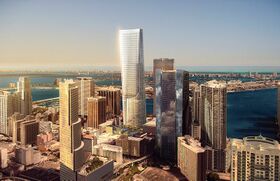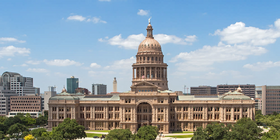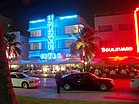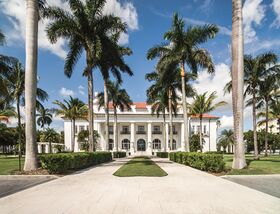Ponto Solar
This article is incomplete because it is pending further input from participants, or it is a work-in-progress by one author. Please comment on this article's talk page to share your input, comments and questions. Note: To contribute to this article, you may need to seek help from the author(s) of this page. |
Ponto Solar | |
|---|---|
Metropolis | |
| Nickname(s): PS, Sunpoint, Sonnenpunkt | |
| Motto(s): Sempre iluminando o futuro "Always illuminating the future" | |
| Country | |
| Prefecture | Ponto Solar Capital District |
| Founded by | Tadeo Mandujano |
| Government | |
| • Type | Mayor-commission |
| • Body | Ponto Solar Metropolitan Council |
| • Mayor | João da Silva (PRL) |
| Population (2020) | |
| • Total | 2,200,000 |
| Demonym | Ponto Solarian |
| Time zone | UTC+15 |
| Website | pontosolar.ab |
Ponto Solar, officially the Capital Metropolis of Ponto Solar (Luzelese: Metrópole Capital de Ponto Solar) and archaically as San Felix, is the capital and largest city of Arbolada, in addition to being the sole major constituency in the Ponto Solar Capital District. In 2020, the city had 2.2 million inhabitants; the city is considered the lynchpin of the Florestas Verdes-Ponto Solar-Calusa metropolitan area, which contains a population numbering more than 10 million (making it one of the most populous metropolitan areas in Asteria Inferior, and holding nearly half of the population of Arbolada within). Ponto Solar is located on the coast of south-central Arbolada, sitting next to the Lumine Ocean via the Gulf of Good Tidings.
The city was originally formed in 1566 as a colony of Paretia, christened San Felix by its Esmeiran founder Tadeo Mandujano. It thus became a hub of Luzelan and Esmeiran immigration into Asteria Inferior. Following his death, the Viceroyalty of San Felix was formed, with the eponymous settlement becoming the colony's economic and population center. It remained the capital of the newly-founded United Republic of Arbolada in 1784 following the Arboladan War of Independence. Growing only further due to immigration from other continents and from the inland settlements, San Felix was eventually rechristened as Ponto Solar, or Sunpoint, by President Horacio Sallent in 1864. As the 20th century approached, the city's continued growth and importance forced the national government to partition the city's territory from the rest of the San Felix prefecture, thereby creating the Capital Metropolis area by 1938.
Throughout the presidential tenures of figures such as Nikolai Vorobev and Paul Bacharach, the city saw continued modernization and expansion, including the conception of the Florestas Verdes-Ponto Solar-Calusa metropolitan area which saw the coastal urban landscape of Ponto Solar reach towards the two other major Arboladan cities. By the turn of the 21st century, Ponto Solar had become one of the most populous, richest, and most influential cities in Asteria Inferior, with its massive municipal economy being fed by Arbolada's interior industries and that of tourism and finance.
Ponto Solar is considered to be a beta + city due to its rigorous connection to global trade and travel, and simultaneously functions as the transportation hub for almost all of Arbolada through its rail, highway, and airport connections. It is also home to the Arboladan Stock Exchange and hosts the headquarters of various major Arboladan companies. Being the executive, judicial, and legislative capital of the country, it is also host to the headquarters of all government institutions, including the Golden Capitol and the President of Arbolada's residence in the Arboladan Presidential Mansion. The city functions as one of Arbolada's major tourist magnets as a result of its boisterous nightlife, environmental and recreational attractions, and major landmarks. Ponto Solar also functions as one of Asteria Inferior's major research centers, with universities such as the Ponto Solar University and University of Arbolada offering high-class academia.






